Author: Tsvetana Toncheva
Today's edition of "Nedelen sledobed" is dedicated entirely to the art of opera. There are two occasions: the new production of "Lohengrin" at the Sofia Opera and the 110th anniversary of the birth of the distinguished Bulgarian opera director Mihail Hadjimishev. There is a direct and very close connection between the two occasions, because the penultimate production of Wagner's masterpiece "Lohengrin" in Sofia dates back to 1968 (the premiere was on 19 April) and it was by the conductor Asen Naydenov and the director Mihail Hadjimishev. And the latest realisation by Constantin Trinks and Plamen Kartaloff was presented on 13 and 23 June in the hall of the National Opera and Ballet. I watched both performances – the premiere on 13 June and the second performance on the 23rd. I have a clear position, but I will express my opinion later, because now I hasten to introduce an important guest of the Wagner Festival in Sofia this year – the British musicologist and critic Gregor Tassie, a renowned and respected specialist, with a huge number of reports, reviews and interviews published in prestigious European publications and author of several books on great Russian musicians. Here is part of the conversation with Mr. Tassie, dedicated to Wagner's spectacles in Sofia this year.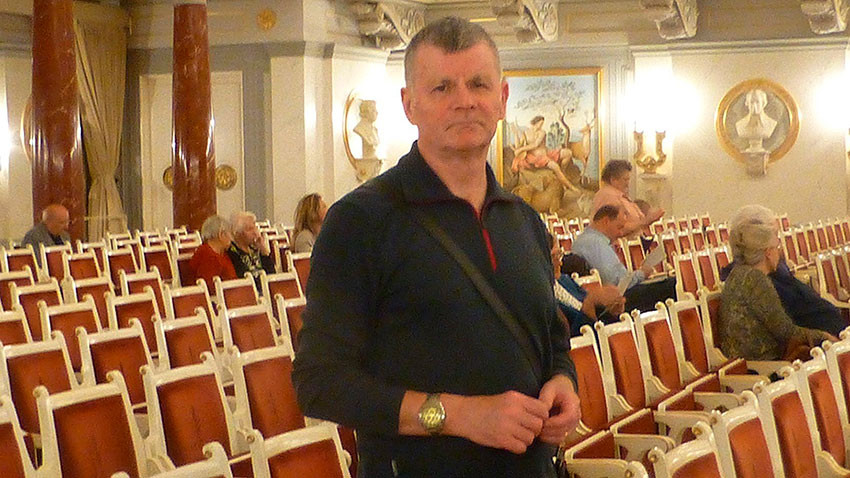
T.Т. – Hello and welcome to the "Nedelya Sledobed" studio. Last year, after watching the premiere performances of the new production of "The Ring" in Sofia, you wrote: "The whole project was a remarkable event with the participation of almost entirely Bulgarian singers. I doubt that any other country could provide Wagnerian singing of this standard...". What would you say today, after watching the premiere of "Lohengrin" and the revivals of the first three operas in the tetralogy? Do you still think there are so many good singers in Bulgaria, as you note in your interview with Mariana Zvetkova?
G.Т. – Yes, I think I can confirm, having watched "Lohengrin", especially about two Bulgarian singers I have not heard before – Gabriela Georgieva and the one who was Telramund (Ventseslav Anastasov – AN). I think he started working at the Sofia Opera this year (actually Ventseslav Anastasov has been a staff artist at the theatre since 2021 – AN) and he was amazing. I know some critics said about these singers "world class". I think the richness of Bulgarian singing is the challenge of presenting "Lohengrin" with Bulgarian singers. There is a very long tradition of Bulgarians singing abroad. Boris Christoff is just one example. He went to Vienna, and this city is the centre and starting point for the training and careers of many opera stars who, after the Vienna State Opera, sing in the world's greatest theatres – in America, Britain, Germany. I think this tradition continues and grows, this is the richness of the Bulgarian singing tradition.
T.Т. – And do you really think that Bulgarian singers are very good in Wagner's operas?
G.Т. – Yes. It's difficult to determine exactly why. I think that if you have a rich singing tradition, folk tradition, even though the Germanic character traits are different, the tonality, the colour range of the language is different... I was talking to one of the singers who sang in "Lohengrin" today, Tsvetana Bandalovska, and she told me that while she was studying the part of Elsa on her own, she found it easy for her because of the vocal characteristics.
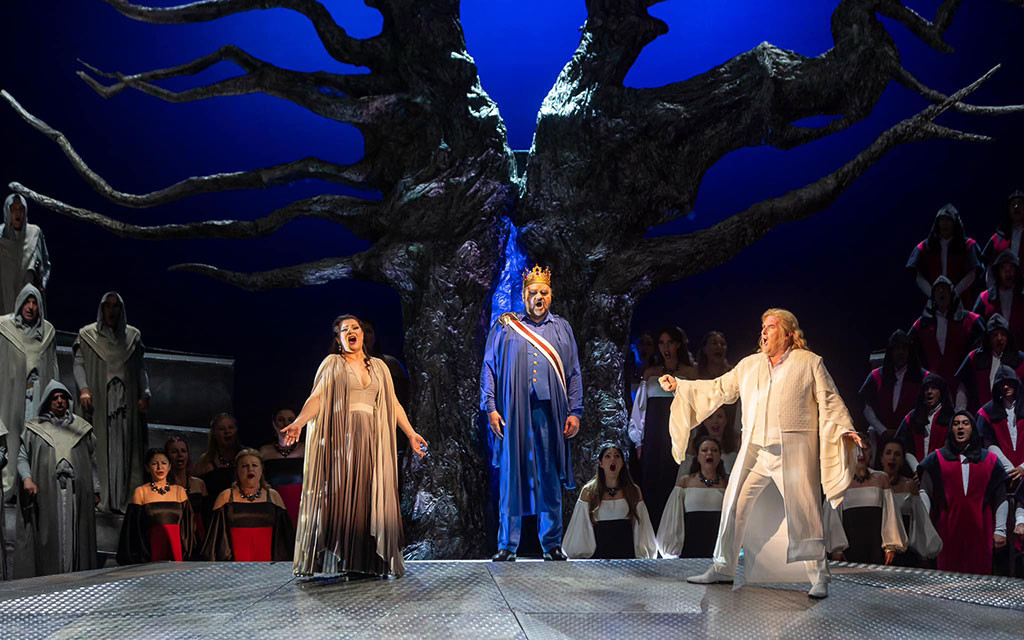
T.Т. – Zvetana was an amazing Sieglinde last year in "Die Walküre", but I think she did something else in Elsa, something different. I liked her Elsa very much. I'm glad you liked her too. Besides everything, she's beautiful, her costumes stood out magnificently.
In an interview with Constantin Trinks published last September, you noted the small number of orchestra members in our opera theatre, and he explained this fact by the size of the orchestra pit, which simply cannot accommodate more. What do you think about the Sofia Opera Orchestra? Do you think it is comparable to those of other European opera houses? I recall that in the interview you specifically singled out the brass, and Trinks made a point of focusing on the French horn players, who I also think are among the best instrumentalists in the country at the moment.
G.Т. – Wagner is known to have required an orchestra of at least 105-110 musicians for "Lohengrin", as well as other operas such as "Parsifal" and "Tristan und Isolde". Even the largest opera theatres do not have enough space for this, the conditions for 100 or more musicians in an orchestra are difficult, especially if the temperatures are above 30 degrees. So sometimes the decision is made to have an orchestra of less than 105, suitably staffed with strings, brass and woodwinds. But the number of brass and woodwinds always remains the same as if the orchestra is full. So there is no technical reason for the orchestra to sound limited. The acoustics in the theatre are also important. I have seen about 10 different operas in your theatre, this year and last, and I find the acoustics excellent. I've sat in different seats in the hall – the acoustics are very, very good indeed. So I don't think it's a big problem to have an orchestra of 74-75 people.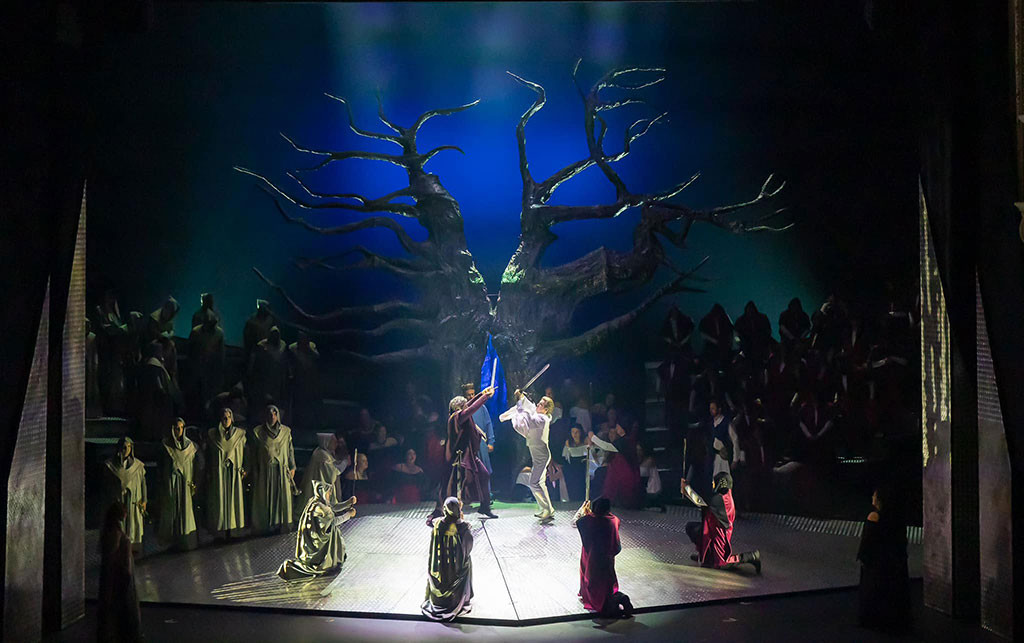
T.Т. – But do you like the performances of this orchestra? The sound, the playing?
G.Т. – I think... I was very surprised... to be honest, a lot of orchestras from all over the world come to the UK. I've mentioned to a few people here that I haven't heard a Bulgarian orchestra live anywhere. Nowhere in Europe that I've been. I've heard orchestras from Japan, from all over Eastern Europe, from America. The same goes for the recordings. I haven't seen any recordings of Bulgarian orchestras released on disc. And here the level is very high. And I could see the instrumentalists in the orchestra playing this music in an inspired way, even though they spend 4-5 hours in this space in very difficult conditions. I think there's a good tradition of brass playing in this orchestra, woodwind playing as well, and the strings are as good as in any other ensemble I've listened to. Many things in an orchestra depend on the staff. In "Die Walküre", for example, there was a cello solo. It was absolutely beautiful! I'd love to meet that cellist – he or she plays magnificently. So you have a very good orchestra, first class.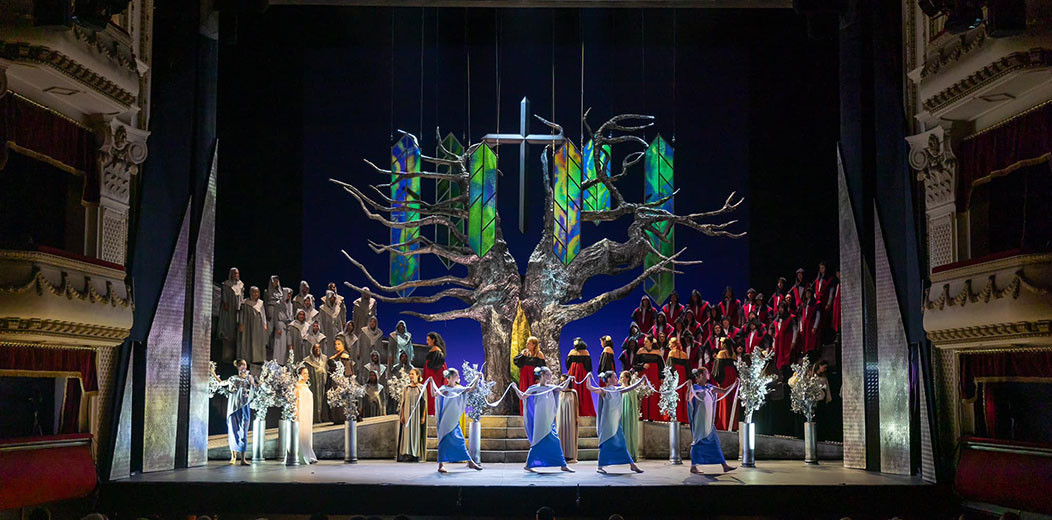
T.Т. – Glad to hear it. And I think the Sofia Opera has some of our best instrumentalists, especially the brass. The productions at the Sofia Opera, as in other Bulgarian opera houses, are distinguished by a striving for beautiful costumes, sets, simple or lavish, but traditional design. I think that this good tradition from opera's past is still preserved in Italy. Whereas in other countries of Western Europe, especially in Germany and Austria, the directors and designers sometimes seem completely crazy. I don't understand why Lohengrin has to come out of the sewers with dirty and ragged clothes, like last time in Salzburg. What do you think of this sad trend we have been seeing for decades?
G.Т. – I think... sometimes it's a matter of the psychology of the directors. I think I can understand one of the reasons – why they do it. They try not to make opera for the elite. Because it's considered elitist art. They're not thinking about opera lovers, they're supposedly thinking about young people. I think it's considered that they'd have a hard time getting young people to listen to Verdi, Puccini, Wagner, Rossini if they wear costumes in opera the way people wore costumes 200 years ago. They find it attractive to have sex on stage, animals...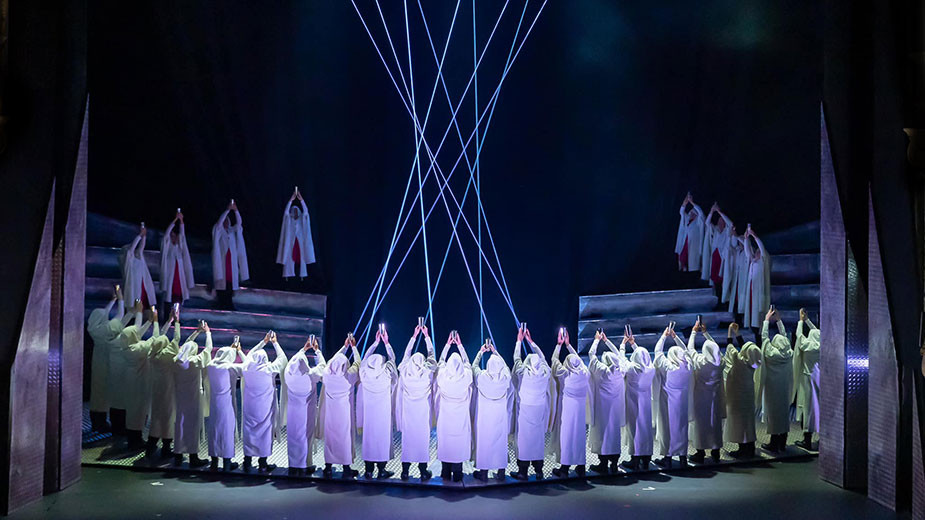
T.Т. – Or a lot of blood...
G.Т. – Blood, yes! I remember a production of "Das Rheingold" a few years ago where there were two crocodiles on stage. Basically, there is no mention of crocodiles in the opera "Das Rheingold"... Even with very careful research and study of Wagner's work, there is no way to find that he wanted crocodiles on stage. In English we call this gimmicks. I think the intention of attracting young people to opera in this way just doesn't work. Of course, the development of opera, both in the UK and in most countries, depends on governments. Governments come and go, culture ministers come and go, and within a year or two totally different ideas about opera emerge. For example, that it does not have much impact, that young people cannot be attracted to this art. It is true that opera audiences everywhere, including in Scotland, are predominantly middle-aged and above. You see a lot more people with grey hair in the halls, and it's the same at symphony concerts. I think the way to get more people to go to the opera is education. If we talk specifically about the UK, music education covers at least 80 per cent of schoolchildren. We have teachers who teach them singing, the violin, other instruments. In my preliminary conversation with you, I mentioned where my interest in music came from – from primary school, from the teachers I met there. Part of the problem (besides education) is that a certain number of directors became too "modern" – in America, in Western Europe. But I think that trend is going into the sunset. And Sofia Opera productions, which are quite different, actually attract young people. And they come well dressed. And they come because they want to hear the music. Maybe they go to rock concerts, but in the hall of the Opera they sit and listen attentively. I think the success of the Wagner spectacles at the Sofia Opera, the Verdi performances (I even found out that you recently had a work by Cherubini – "Medea"), it seems to me that young people in Bulgaria are interested in this – serious music, opera and symphonic. I know a lot of people from different countries that I've talked to in the intermissions of your performances – people from Europe, Australia, America, who come here especially to see these productions, to hear and see opera in its traditional form, as the composer conceived and created it...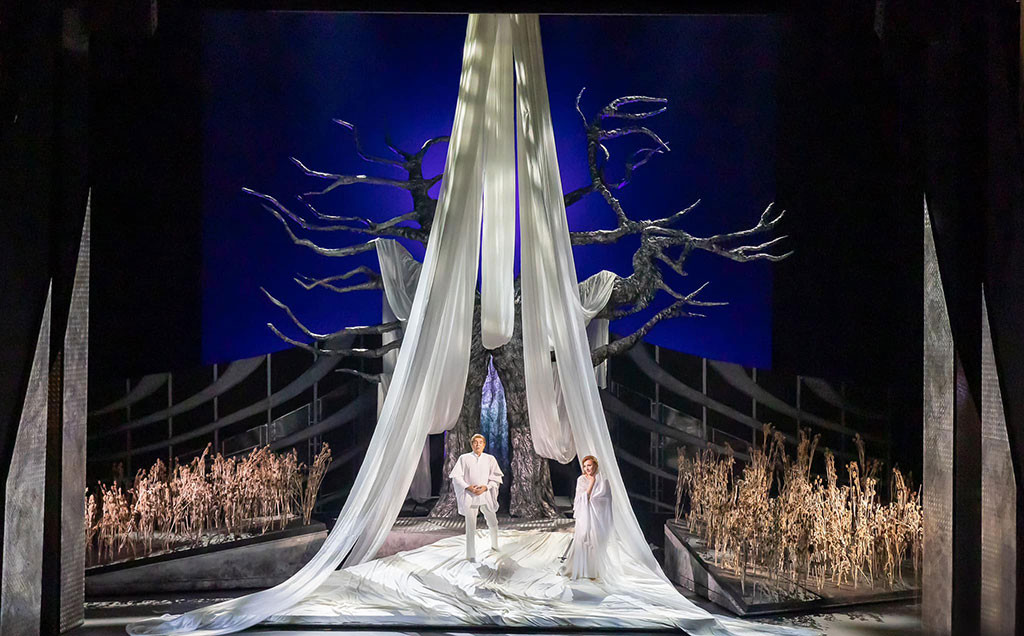
T.Т. – I won't ask you if you like Plamen Kartaloff's productions. I understand that you like them, I read it in your reviews from last year's Wagner Festival. But do you have any comments on the latest premiere, "Lohengrin"? About the soloists, the chorus? What could they improve? What do you think the Sofia Opera casts still need to work on?
G.Т. – There is a tradition from 30-40 years ago. Bulgarian choirs have come to the UK many times, have performed, made recordings and have been very popular in our country. Your mixed choirs have been fantastic. Especially the Bulgarian folk choirs...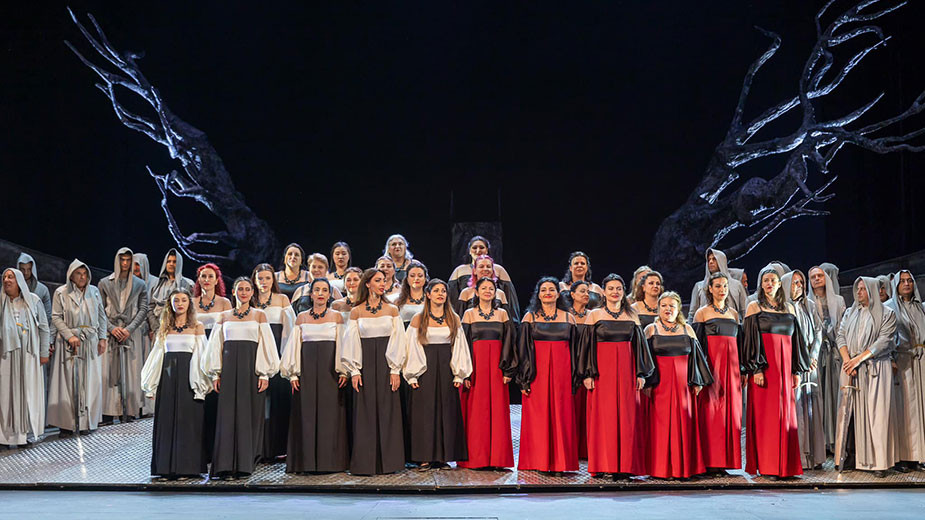
T.Т. – Yes, but that's in the past. I'm talking about the Sofia Opera.
G.Т. – Okay, I have to say I was impressed with the mixed chorus in "Lohengrin". Their scenes in the Act I were amazing. The orchestra – wonderful performance, the soloists – superb singing. I would compare them to some of the greatest and most prestigious opera houses... And I think when they present "Lohengrin" for the second time, it will be even better.
T.Т. – Yes, I can't wait to see and hear Simon O'Neill as Lohengrin. Do you know this artist?
G.Т. – He is a very famous singer. I've seen him in the UK. He sang in Edinburgh just before the pandemic started and he was absolutely brilliant. He was magnificent in operas by Wagner and Verdi – a fantastic tenor. And a very good actor. I think the audience in Sofia should buy up all the tickets for his spectacle.
Photos: Sofia Opera and Ballet
https://bnr.bg/hristobotev/post/102013504
